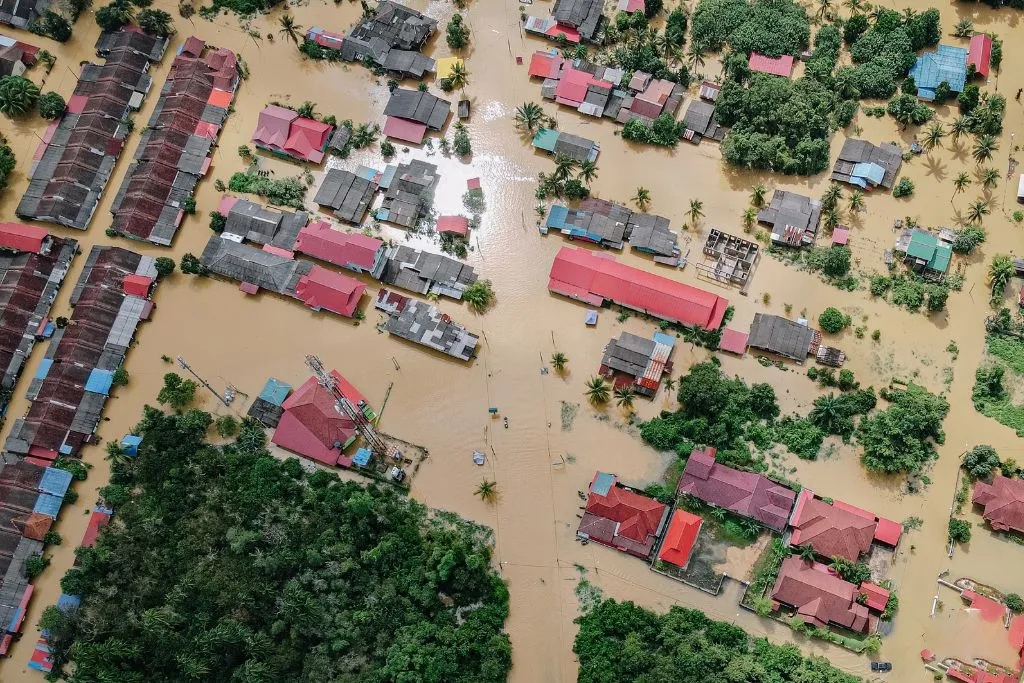Catastrophic floods have once again hit Bangladesh, leaving nearly 2 million people in distress and stranded within just a month. A video reported by Bangladesh Sangbad Sangstha (BSS) on Saturday shows extensive flooding in Sylhet city and Sunamganj town. The flooding, caused by relentless heavy rains and river overflows from runoff in the hilly regions bordering India, has devastated the area.
The Water Development Board reported that four rivers exceeded their danger marks due to the excessive rain and runoff, as covered by local media.
Images show villagers in the severely affected low-lying areas of Sylhet wading through waist-deep water and stacking their belongings to protect them from the filthy waters.
Concerns are growing for those trapped by the floodwaters, facing food scarcity and a lack of clean water, according to local reports.
Approximately 1.75 million people in Sylhet and 792,000 in Sunamganj have been affected by the flooding, with authorities setting up over 6,000 shelters for the displaced, as reported by BSS.
Among them are 772,000 children urgently needing assistance, according to UNICEF, which reported that more than 800 schools had been flooded, with an additional 500 used as flood shelters.
“As waters rise, children are the most vulnerable, facing increased risks of drowning, malnutrition, waterborne diseases, displacement trauma, and potential abuse in overcrowded shelters,” said Sheldon Yett, UNICEF Representative to Bangladesh, in a statement.
Densely populated and low-lying Bangladesh is prone to rain, flooding, and cyclones. However, the country is considered one of the most vulnerable to the impacts of the human-induced climate crisis, as studies show. As extreme weather events become more frequent and severe, the humanitarian and economic consequences for Bangladesh will worsen.
By 2050, 13 million people in Bangladesh could become climate migrants, and severe flooding could cause the GDP to decline by as much as 9%, according to the World Bank.
The recent downpours and floods occurred soon after the region had recovered from widespread flooding in late May following Tropical Cyclone Remal, which affected about 5 million people in Bangladesh and southern India.
“For many, this will change the course of their lives, leaving them without homes and schools and forcing them to move to temporary shelters for an undetermined period,” said Sultana Begum, Save the Children’s regional humanitarian advocacy and policy manager for Asia, in a statement.
“Everything we are hearing points towards these kinds of extreme weather events becoming increasingly severe. And we have not seen two bouts of severe flooding occur so quickly before. Make no mistake, the climate emergency is already making its mark on India and Bangladesh, and it is taking away children’s homes, families, food, water, and access to education and healthcare.”





